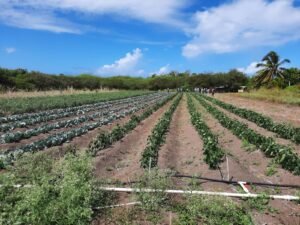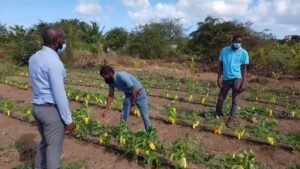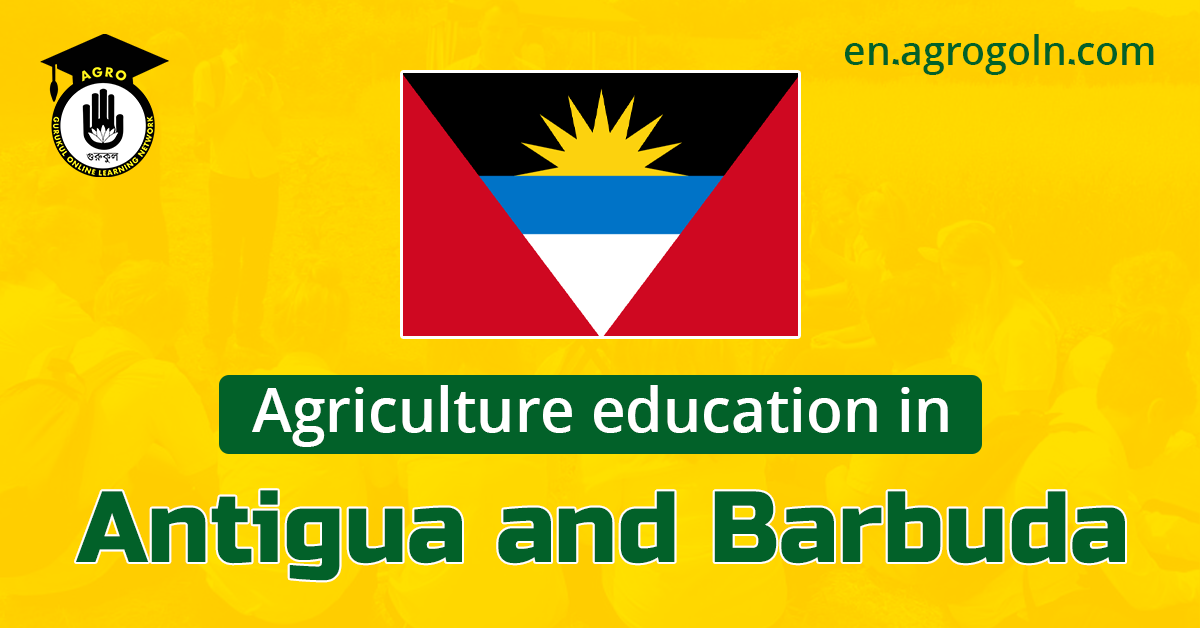Agricultural Education in Antigua and Barbuda. Antigua and Barbuda, a twin-island nation in the Caribbean Sea, has a significant agricultural history. With a tropical maritime climate and fertile soil, agriculture plays a crucial role in the local economy and culture. Agricultural education, therefore, is essential for the sustainable development of this sector, equipping the future generations with knowledge and skills necessary to innovate and adapt to changing circumstances. In recent years, agricultural education has been seeing renewed attention and investment to further increase its impact.
Agricultural Education in Antigua and Barbuda
Historical Context
Historically, Antigua and Barbuda’s economy was based on sugarcane farming, which was mostly replaced by tourism in the latter part of the 20th century. This transition led to a decrease in agricultural activity and, consequently, agricultural education. However, the importance of agriculture has been recognized in recent years, particularly in terms of food security, economic diversification, and environmental sustainability.

Institutional Framework
The Ministry of Agriculture, Fisheries & Barbuda Affairs, along with other governmental and non-governmental organizations, plays a critical role in agricultural education. They are responsible for the formulation and execution of policies, educational programs, and initiatives designed to promote agricultural learning and practices. Moreover, collaboration with regional and international organizations helps bolster these local efforts.
Education and Training Programs
Agricultural education in Antigua and Barbuda takes several forms, targeting different age groups and levels of experience. In primary and secondary schools, agriculture is often included in the curriculum, providing students with basic knowledge about local crops, farming techniques, and the importance of sustainable practices.
In addition to the formal school curriculum, extracurricular programs and clubs, such as 4-H programs, encourage young people to explore agriculture through practical activities. These programs aim to instill an appreciation for agriculture and foster skills that can be used in the industry.
At the tertiary level, agricultural education is more specialized, often focusing on specific areas of agriculture. For example, the Antigua and Barbuda Hospitality Training Institute (ABHTI) provides training in agri-tourism, teaching students how to integrate agricultural practices with the lucrative tourism industry.

Adult Education and Community Outreach
Agricultural education in Antigua and Barbuda is not confined to formal education settings. Adult education and community outreach programs also play a vital role. These programs are designed to help farmers improve their methods, adopt new technologies, and increase their productivity and sustainability. Workshops, seminars, and field demonstrations are common methods of instruction. Additionally, extension services provide individualized advice to farmers, often directly on their farms.
Challenges and Opportunities
Despite the importance of agricultural education, several challenges hamper its effectiveness. The perception of agriculture as a low-status occupation can discourage young people from pursuing agricultural careers. Lack of resources, such as up-to-date textbooks and agricultural equipment for practical training, is another concern.
Yet, there are significant opportunities. The growing global emphasis on sustainable development and climate-smart agriculture creates the need for well-educated agriculturalists. Moreover, the tourism sector can provide a ready market for locally grown products, promoting the idea of “farm-to-table” experiences.

The Future of Agricultural Education
The future of agricultural education in Antigua and Barbuda lies in overcoming challenges and maximizing opportunities. This requires investment in resources, teacher training, and curriculum development. Technological advancement, including the use of digital tools for instruction, can greatly enhance the reach and effectiveness of agricultural education. Furthermore, collaboration between educational institutions, government departments, farmers’ associations, and international organizations can ensure that the education provided is relevant and beneficial.
In conclusion, agricultural education plays a vital role in Antigua and Barbuda, helping to sustain and develop the agricultural sector. By equipping individuals with the knowledge and skills necessary to engage in productive and sustainable farming, it helps ensure food security, environmental sustainability, and economic resilience. Thus, investment in and attention to agricultural education are crucial for the future of Antigua and Barbuda.
See more:
